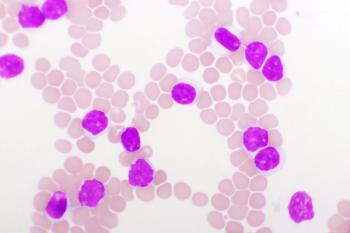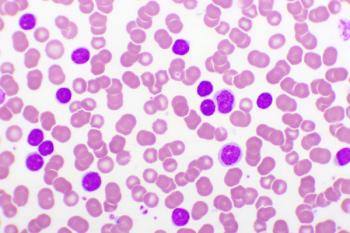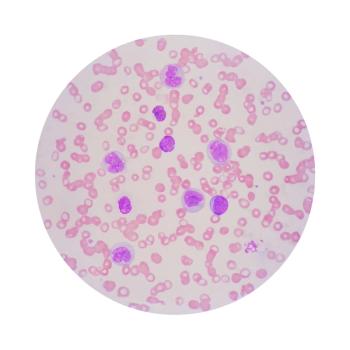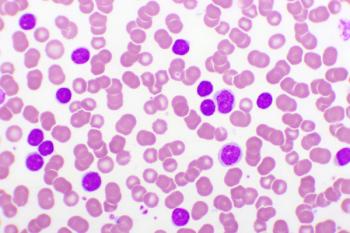
A panel of experts discuss the future of psychedelic medicine and the role of the pharmacy in that future.

A panel of experts discuss the future of psychedelic medicine and the role of the pharmacy in that future.

Cutaquig was recently approved for the treatment of pediatric patients aged 2 years and older with primary humoral immunodeficiency.

An overview of the types of biomarkers that play a role in the manifestation of Waldenstrom macroglobulinemia.

The characteristics of Waldenstrom macroglobulinemia that distinguish the disease from other types of lymphomas.

Data from a couple of new molecules could be encouraging for the treatment of acute myeloid leukemia and diffuse large B-cell lymphoma

In addition to data showing the durable efficacy of acalabrutinib, other data presented at ASH 2021 demonstrate that the new tablet formulation of the drug supports ease of use for patients

Most adverse effects are very tolerable and easily managed, including headaches, diarrhea, and some neutropenias or infections

Matthew Davids, MD, MMSc, associate professor of medicine at Harvard Medical School, discusses the results of a longer-term follow up for iFCR therapy for individuals with chronic lymphocytic leukemia .

Acalabrutinib could offer a high level of confidence for patients looking at a long course of disease.

Matthew Davids, MD, MMSc, associate professor of medicine at Harvard Medical School, discusses how common chronic lymphocytic leukemia is for younger individuals

Matthew Davids, MD, MMSc, associate professor of medicine at Harvard Medical School, discusses how the results of a longer term study differ for individuals who were younger with chronic lymphocytic leukemia as opposed to those who are older.

Myriam Mendila, MD, chief medical officer and global head of medical affairs at Novartis Oncology, discusses ongoing trials assessing efficacy and safety of asciminib in the treatment of chronic myeloid leukemia.

Matthew Davids, MD, MMSc, associate professor of medicine at Harvard Medical School, discusses what the results of the initial iFCR study showed and what the highlights of the longer-term follow up were for individuals with chronic lymphocytic leukemia.

Shannon M. Rotolo, PharmD, BCPS, discusses what prompts pharmacists to make physician referrals to patients with atopic dermatitis and offers some beneficial advice.

Matthew Davids, MD, MMSc, associate professor of medicine at Harvard Medical School, discusses how iFCR therapy increases the chance of functional cure for younger individuals with chronic lymphocytic leukemia.

Closing out their discussion on marginal zone lymphoma, the panel considers which future treatment strategies are most promising.

Moving beyond BTK inhibition in marginal zone lymphoma, expert panelists review other therapies and drug classes with indications in this setting.

Experts consider optimal approaches to administering therapy for CDI and share insight on available treatment guidelines.

Shared insight on the prevalence of recurring Clostridioides difficile infection and management strategies.

Lindsey Roeker, MD at assistant attending L1, Memorial Sloan Kettering Cancer Center, discusses her ASH 2021 presentation and addresses how the study design could affect future studies.

Myriam Mendila, MD, chief medical officer and global head of medical affairs at Novartis Oncology, discusses how the ASCEMBL study data may impact treatment strategies and approaches for patients with chronic myeloid leukemia.

Lindsey Roeker, MD at assistant attending L1, Memorial Sloan Kettering Cancer Center, discusses her ASH 2021 presentation and addresses the study design and the sample demographics.

Lindsey Roeker, MD, assistant attending L1 at Memorial Sloan Kettering Cancer Center, discusses her ASH 2021 presentation and addresses the highlights of the study and how the add-on approach affect the treatment of CLL.

The body of research around acalabrutinib is becoming quite advanced, allowing clinicians to feel confident when treating patients.

Lindsey Roeker, MD, assistant attending L1 at Memorial Sloan Kettering Cancer Center, discusses her ASH 2021 presentation and addresses how the addition of umbralisib and ublituximab affect those being treated with ibrutinib.

Myriam Mendila, MD, chief medical officer and global head of medical affairs at Novartis Oncology, discusses how asciminib has impacted the treatment landscape for chronic myeloid leukemia.

New data are being presented at ASH 2021 regarding the durable efficacy of acalabrutinib in chronic lymphocytic leukemia.

Lindsey Roeker, MD, assistant attending L1 at Memorial Sloan Kettering Cancer Center, discusses her ASH 2021 presentation and addresses some of the challenges and risk of ibrutinib as treatment for CLL.

Myriam Mendila, MD, chief medical officer and global head of medical affairs at Novartis Oncology, discusses new longer-term efficacy and safety data from the pivotal phase 3 ASCEMBL study.

Teena Chopra, MD, MPH, professor of infectious diseases at Wayne State University, discussed how microbiome-based therapeutics may impact the current treatment landscape for C. diff infection and recurrent C. diff infection.